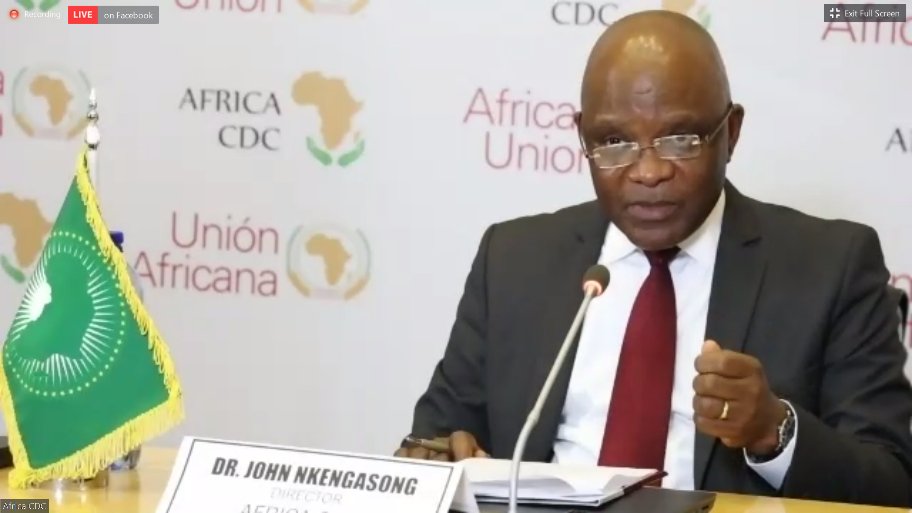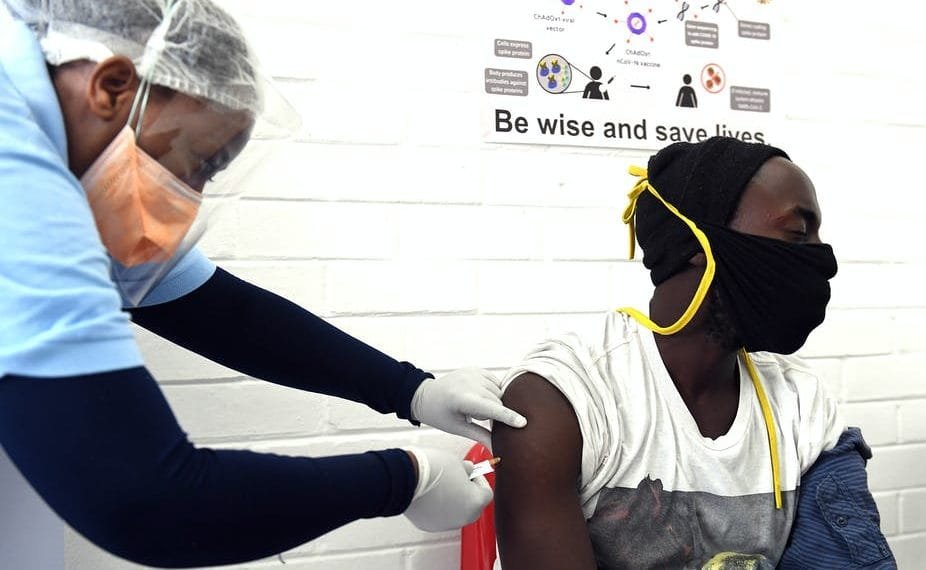The Director of the Africa Centres for Disease Control and Prevention, John Nkengasong has intimated that the African Union is backing calls for drugmakers to waive some intellectual property (IP) rights on COVID-19 medicines and vaccines to speed up their rollout to poor countries.
Speaking at a news conference, the head of AU’s disease control body posited that IP transfers were a “win-win for everybody” that would address huge inequalities in global public health.
South Africa and India, which both manufacture drugs and vaccines, made the proposal at the World Trade Organization (WTO) last year, saying IP rules were hindering the urgent scale-up of vaccine production and provision of medical products to some patients.
The two countries have faced opposition from some developed nations, but the backing of the African Union is expected to give a renewed drive to the push to relax IP rules.

Mr Nkengasong during the conference, gave two examples where the developing world had suffered from restricted access to medicines; the swine flu pandemic in the late 2000s and HIV/AIDS in the 1990s.
“In 1996, HIV drugs were available, and we saw how mortality in the developed world decreased drastically. But it would take 10 years before those drugs were accessible in Africa in any meaningful way.
“In between, 12 million Africans died, so I just use those numbers to say…any IP transfer will be beneficial to everybody, because nobody wants to sit back and be proud of that sad event. … We want to be on the right side of history.”
John Nkengasong
Mr Nkengasong also used the platform to announce that the Africa CDC’s regulatory taskforce had approved AstraZeneca’s COVID-19 vaccine for emergency use. This comes a day after Ghana received its first AstraZeneca doses from global vaccine distribution facility COVAX.
Additionally, he revealed that the developers of Russia’s Sputnik V vaccine had submitted data dossiers to the Africa CDC and an expert panel would review it. He also said the organization has not “received dossiers yet from China colleagues but we remain optimistic.” Countries including Egypt, Zimbabwe and Senegal have already started rolling out Chinese COVID-19 vaccines.
Addressing reports of shortages in the supply of medical oxygen for coronavirus patients that have led to unnecessary deaths in Africa and Latin America, the African CDC Director said medical oxygen is a “huge critical need” across the continent and is a main reason that COVID-19 patients are likely to die here during case surges.

It takes about 12 weeks to install a hospital oxygen plant and even less time to convert industrial oxygen manufacturing systems into a medical-grade network. But Nigeria for instance, only decided to fully address inadequate supplies last month, after hospitals were overwhelmed and patients started to die.
In a separate interview, Dr. John Adabie Appiah of the World Health Organization stated that even before the pandemic, sub-Saharan Africa’s 2,600 oxygen concentrators and 69 functioning oxygen plants met less than half the need, leading to preventable deaths, especially from pneumonia.
He indicated that the number of concentrators has grown to about 6,000, mostly from international donations, but the oxygen produced isn’t pure enough for the critically ill. The number of plants that can generate higher concentrations is now at 119.
In all, health experts estimate that 500,000 patients in developing countries currently need 1.1 million oxygen cylinders a day. A global task force focusing on oxygen is set to be introduced this week and will include the World Health Organization and World Bank, among others. Already, $90 million has been identified in immediate oxygen funding needs for 20 developing countries, including Nigeria and Malawi.
intellectual property intellectual property intellectual property intellectual property























